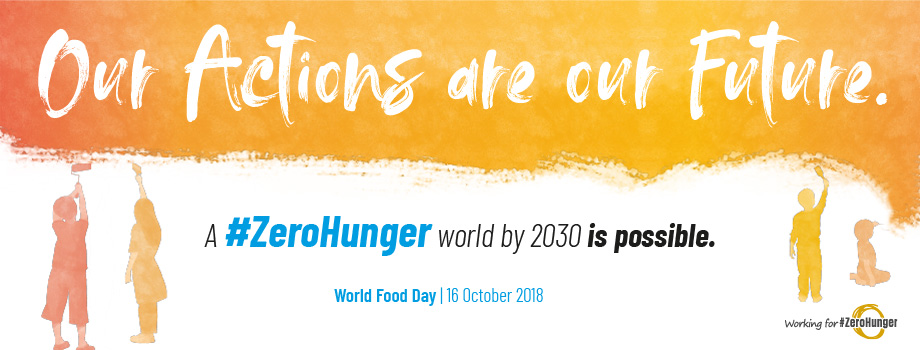Call for Contributions: UNSCN Nutrition – Edition 44
Open until 10 January 2019
UNSCN Nutrition is the flagship, peer-reviewed publication of the UNSCN, previously entitled UNSCN News. The 2019 edition will focus on food environments to enable healthy and nutritious diets.
On a daily basis, people acquire and consume food through their food environments. It is the link between diets and the wider food system. It considers the ability to access nutritious food affordably and conveniently. It is also shaped by external factors, such as the price and availability of food, as well as the taste, marketing and regulations that impact what is being promoted.
There are various ways in which the food environment has been defined. The 2017 HLPE defines it as “the physical, economic, political and socio-cultural context in which consumers engage with the food system to make their decisions about acquiring, preparing and consuming food”(HLPE 2017). Others have defined food environments more in terms of the foods themselves, as “all the foods which are available and accessible to people in the settings in which they go about their daily lives. That is, the range of foods in supermarkets, small retail outlets, wet markets, street food stalls, coffee shops, tea houses, school canteens, restaurants and all the other venues where people procure and eat food” (FAO), encompassing the aspects of availability, affordability, convenience, and desirability (Herforth and Ahmed 2015).
From local markets to megastores, food environments are changing rapidly as people move from rural to urban areas and as dietary preferences evolve. This evolution has also led to a higher prevalence of overweight and obesity and deaths from non-communicable diseases, especially in high income countries. Food labelling, product positioning, advertising, promotions and marketing are particularly influential, especially when children are the target audience. When designed effectively, policies and fiscal measures can positively influence what is available for consumers and lead to healthier choices. Efforts aimed at introducing greater nutrition into the supply chain, improving post-harvest practices and increasing the nutrient content of foods through, for example, food fortification, are also essential.
This Call for Contributions welcomes academically rigorous examples of the positive and negative effects of our current food environments on nutrition. Programs that increase consumer demand for healthy food such as consumer behaviour change communications, social marketing and nutrition education are also welcome.
KEY QUESTIONS FOR CONSIDERATION
- What have national or local governments done to improve food environments?
- What has been the impact of price interventions on consumption?
- How can inherently nutritious foods be made more convenient for consumers? What is the role of private sector?
- What workforce development and training opportunities are needed to build the necessary skills and leadership capacity to improve food environments?
- What are some specific observations around how food environments are changing in LMICs?
- What are some examples of public procurement affecting food environments?
We welcome contributions on the following categories:
Feature articles: 3,000 words articles related to the general topic of the publication. The articles will be submitted to peer review and can include conceptual contributions or practical examples of policies and programmes.
Speaker's Corner: 1,500 words articles with the authors’ views regarding a hot topic in nutrition policy or programme. The section sometimes features a counterpoint by another author holding an opposite opinion to stimulate debate on important issues. Your contribution could also serve to share your food environment story and how that has impacted the health and well-being of your family and community.
Publications: recent publications of relevance to nutrition, including manuals, tools and guidelines that are usually not found in regular bookstores. Max. 200 words per submission.
Please send your contributions electronically to the UNSCN News to SCN@fao.org with the title “UNSCN Nutrition Proposal”. For editorial information, please refer to the UNSCN News Guidelines for Contributors available here.
Photo credit: FAO/Giulio Napolitano
Deadline: 10 January 2019


